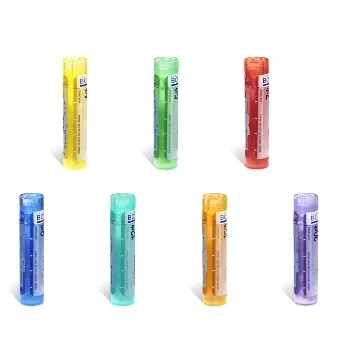

What is bleeding and how can it be identified?
Bleeding, or hemorrhage, is a flow of blood caused by the rupture of blood vessels. It can occur externally, visible to the naked eye as blood flows out of the body, or internally, where blood collects inside the body, often less noticeable but just as dangerous. Symptoms vary according to the severity and location of the bleed, including visible blood loss, weakness, pallor and, in severe cases, hypovolemic shock.
What are the main causes of bleeding?
There are many causes of bleeding, including physical trauma, medical conditions such as ulcers or liver disease, clotting disorders such as hemophilia, and the use of certain medications that affect blood clotting. Accurate identification of the cause is crucial to appropriate treatment.
How is bleeding treated?
Treatment of bleeding depends largely on its cause and severity. First aid, such as applying direct pressure to an external wound, is vital. For internal or more serious bleeding, medical interventions such as blood transfusion, surgery or medication to promote clotting may be necessary. Consult a healthcare professional immediately in the event of severe bleeding.
What precautions can be taken to prevent bleeding?
Bleeding prevention includes taking safety precautions to avoid injury, proper management of underlying medical conditions and careful use of medications that affect blood coagulation. A balanced diet rich in vitamins essential for blood clotting, such as vitamin K, is also recommended.
When should I consult a doctor about bleeding?
It is crucial to consult a doctor in the event of unexplained, prolonged or recurrent bleeding, or if bleeding is accompanied by symptoms such as weakness, dizziness or excessive pallor. For severe bleeding, such as that resulting from serious injury or accompanied by symptoms of shock, emergency medical intervention is imperative.
Advanced Hemostatic Dressings
Discover our advanced hemostatic dressings, designed to rapidly control external bleeding. Featuring innovative technology, these dressings help accelerate the coagulation process, offering a fast, effective solution for emergencies. Perfect for your first-aid kit, our dressings are essential for any bleeding emergency.
Vitamin K supplements
Optimize blood clotting with our high-quality vitamin K supplements. Essential for the optimal functioning of blood clotting factors, our supplements are formulated with natural, effective ingredients. A must for maintaining your health and preventing complications linked to abnormal bleeding.
Can you tell a dangerous bleed from a minor one?
It's essential to be able to distinguish a minor bleed from a potentially dangerous one. A minor bleed, such as a small nosebleed or scrape, often stops on its own with little or no treatment. Dangerous bleeding, on the other hand, is characterized by a large amount of blood loss, bleeding that won't stop with simple measures, or bleeding that is accompanied by symptoms such as weakness or confusion. When in doubt, it's crucial to consult a healthcare professional as soon as possible.
Is internal bleeding more difficult to detect? How are they diagnosed?
Internal bleeding can be less obvious than external bleeding, and often requires medical diagnosis to detect. Signs of internal bleeding include abdominal pain, unexplained swelling, pale or bluish skin, and symptoms of shock. Diagnosis may require tests such as an ultrasound, CT scan or MRI to pinpoint the exact location of the bleeding and determine its cause.
What are the implications of bleeding in pregnant women?
In pregnant women, any bleeding, whether slight or severe, should be taken very seriously. Bleeding can signal conditions such as ectopic pregnancy, pre-eclampsia, or placenta previa, which require immediate medical intervention. It is imperative to contact a healthcare professional as soon as any signs of bleeding appear during pregnancy.
Are there natural treatments for minor bleeding?
For small bleeds, such as minor cuts or scrapes, natural treatments can help control bleeding and promote healing. Remedies such as applying ice, using aloe vera or applying honey to a wound can be beneficial. However, these methods should be used with caution and never as a substitute for medical advice if bleeding persists or worsens.
How to manage bleeding while waiting for help?
In the event of severe bleeding, immediate management is crucial to reduce the risk of complications. Apply direct, continuous pressure to the wound using a clean cloth or bandage. Avoid removing any embedded objects. If possible, keep the injured area elevated to reduce blood flow. Remain calm and call for help or go to the nearest hospital immediately. Do not take drugs such as aspirin or ibuprofen, which can aggravate bleeding.